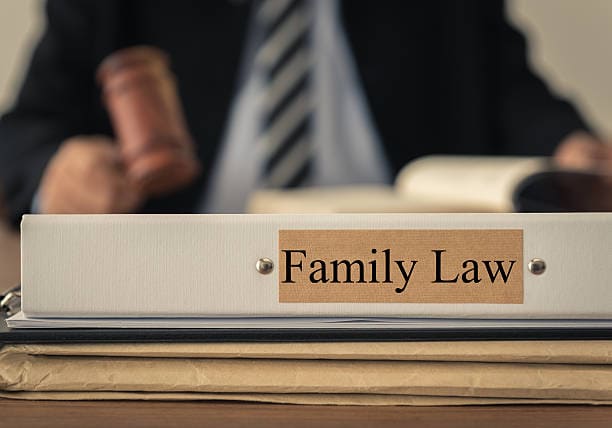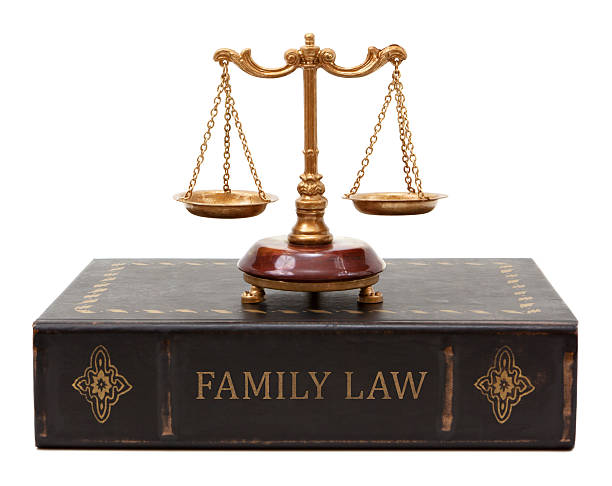International maintenance orders and agreements refer to the financial support provided to a person who is unable to support themselves. Under the Family Law Act 1975, these maintenance orders and agreements are provided for either:
- Children (child maintenance); or
- An ex-spouse (spousal maintenance)
In Australia, a maintenance order or agreement made in another country can be registered with the relevant Australian authority for enforcement. The Australian Central Authority is responsible for managing applications for the recognition and enforcement of international maintenance orders and agreements.
Overall, the Australian legal system recognises the importance of international maintenance orders and agreements. This ensures that family members receive the financial support they need, regardless of where they are located. Read on to know more about relevant legislations and sections in the Family Law Act 1975.
Section 110: Overseas Enforcement of Maintenance Orders
Section 110 of the Family Law Act defines three terms in relation to overseas enforcement of maintenance orders. These are:
1. “Jurisdiction With Restricted Reciprocity”
“A country, or part of a country, outside Australia, declared by the regulations to be a jurisdiction with restricted reciprocity.”
In general and in this context, “reciprocity” refers to the idea that two parties will treat each other in the same way. Specifically, it refers to legal agreements or arrangements between Australia and other countries. These agreements determine how individuals, businesses, or other entities from those countries are treated under Australian law, as well as how Australians are treated under the laws of those countries
2. “Maintenance Order”
An order or determination that deals with the provision of financial support in certain circumstances. It can refer to an order or determination relating to the maintenance of:
- Party to a marriage;
- A child who is under 18 years of age, excluding certain kinds of orders;
- A child who is under 18 years of age, but which continues beyond the child’s 18th birthday, if maintenance is required to support the child’s education or because the child has a disability;
- Children who have turned 18 but which continues beyond the child’s 18th birthday, if maintenance is required to support the child’s education or because the child has a disability
Any other order or determination specified by the regulations is also included in this list. This includes orders made under section 67D of the Family Law Act.

3. “Reciprocating Jurisdiction”
Reciprocating jurisdiction is also an important term to define when discussing international maintenance orders and agreements. This is a non-Australian country declared as such by the regulations. The Regulations can address registering and enforcing maintenance orders from reciprocating or restricted-reciprocity jurisdictions.
The regulations may also provide procedures for transmitting maintenance orders and making orders for variation, discharge, suspension, or revival. Different provisions can apply to reciprocating jurisdictions compared to restricted-reciprocity jurisdictions.
Section 110A: Registration and Enforcement in Australia of Overseas Maintenance Agreements
Section 110A of international maintenance orders and agreements states that the regulations may make provision for and in relation to the registration and enforcement in Australia of:
- Overseas maintenance agreements; or
- Overseas administrative assessments of maintenance liabilities
Overseas maintenance agreements are agreements made between two parties in different countries regarding the financial support of a dependent person. These agreements may outline the terms and conditions of the support. This may include the amount and duration of payments that may be registered and enforced in Australia through the appropriate legal channels.
Overseas administrative assessments of maintenance liabilities refer to an assessment made by an administrative body. Such administrative bodies may include a government agency or court in a foreign country. They make assessments to determine the amount of child support or spousal support owed by an individual to their child or spouse who resides in that foreign country.
Section 110B: Transmission of Agreements to Overseas Jurisdictions
Section 110B of the international maintenance orders and agreements outlines the transmission of agreements to overseas jurisdictions. The regulations may make provision for the transmission of:
- Agreements registered under section 86; or
- Agreements approved by courts under section 87; or
- Financial agreements made as mentioned in subsection 90B(1) that contain matters referred to in paragraph 90B(2)(b); or
- Financial agreements made as mentioned in subsection 90C(1) that contain matters referred to in paragraph 90C(2)(b); or
- Financial agreements made as mentioned in subsection 90D(1) that contain matters referred to in paragraph 90D(2)(b); or
- Administrative assessments of maintenance liabilities.
Section 111: Convention on Recovery Abroad of Maintenance
According to Section 111 of the international maintenance orders and agreements, regulations can be made to:
- Ensure that Australia fulfils its obligations under the Convention on the Recovery Abroad of Maintenance signed in New York on June 20, 1956
- Gain some benefit or advantage for Australia under the convention.
However, these regulations will not take effect until the convention enters into force for Australia.
Section 111A: Convention on Recognition and Enforcement of Decisions About Maintenance Obligations
Section 111A states that regulations can be created to facilitate Australia’s compliance with the Convention on the Recognition and Enforcement of Decisions Relating to Maintenance Obligations signed in 1973 at The Hague.
These regulations can be formulated to ensure that Australia can fulfil its obligations or gain benefits from the Convention. However, the regulations will not be effective until the Convention becomes legally binding and enters into force for Australia.
Section 111AA: Maintenance Obligations With New Zealand
Section 111AA of the international maintenance orders and agreements states that despite anything in Part VII, a court cannot determine an application for child or spousal maintenance payment under this Act or regulations. This is if the:
- Person seeking payment is habitually resident in New Zealand; and
- Determination requires the court to make a decision mentioned in Article 1.2 of the Australia-New Zealand Agreement. The Australia-New Zealand Agreement refers to the agreement signed between the Government of Australia and New Zealand on Child and Spousal Maintenance in 2000.
Article 1.2 of the Agreement includes:
- Child support assessments
- Agreements or orders for maintenance payments
- Suspension
- Modification or revocation of decisions
- Orders or agreements for child or spousal maintenance; and
- Liabilities to pay administrative authorities for child maintenance or government benefits
Section 111AB: Agreement Between USA and Australia for Enforcement of Maintenance Obligations
According to Section 111AB, the regulations can provide for Australia’s obligations under the US-Australia Agreement for the enforcement of Maintenance Obligations. The regulations may also provide benefits for Australia. The agreement was signed on 12 December 2002 and is currently in force.

Importance of Seeking Legal Advice
It is important to seek legal advice from a family lawyer about international maintenance orders and agreements in Australia. The laws and regulations regarding maintenance orders can be complex, especially when dealing with international agreements.
We at JB Solicitors can help you understand your rights and obligations under the relevant laws and protect your interests in during legal proceedings.
Contact us today for more information about laws and regulations under the Family Law Act 1975 or for other family law matters.
